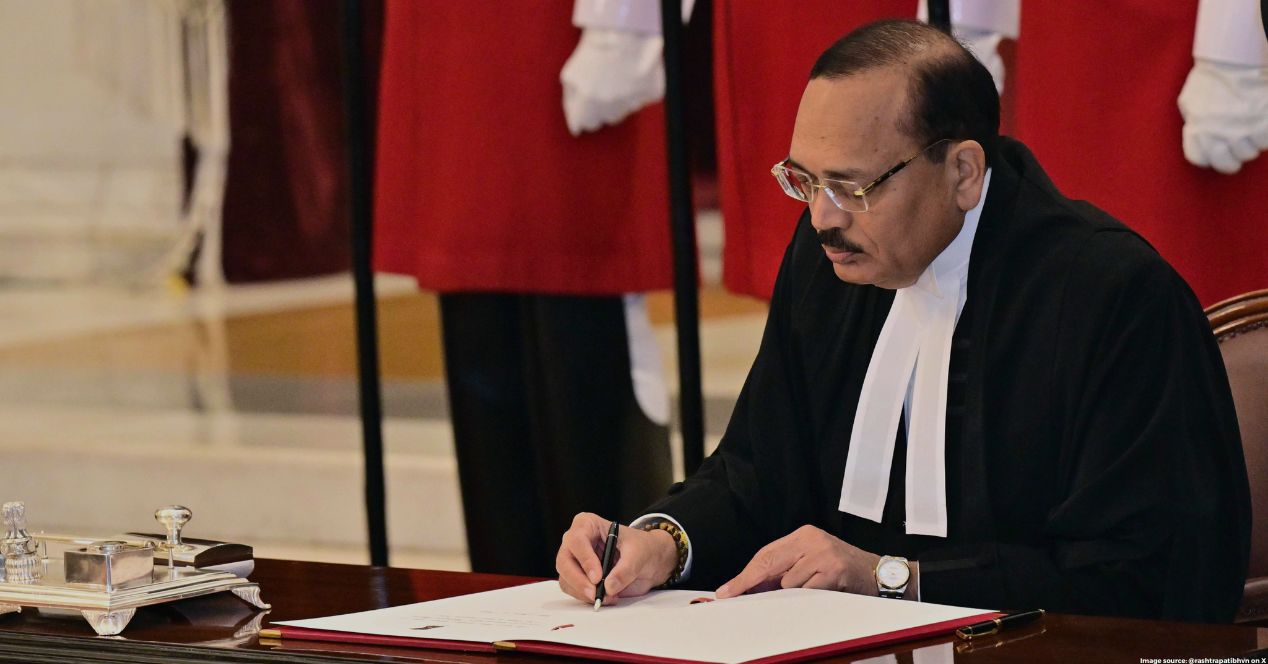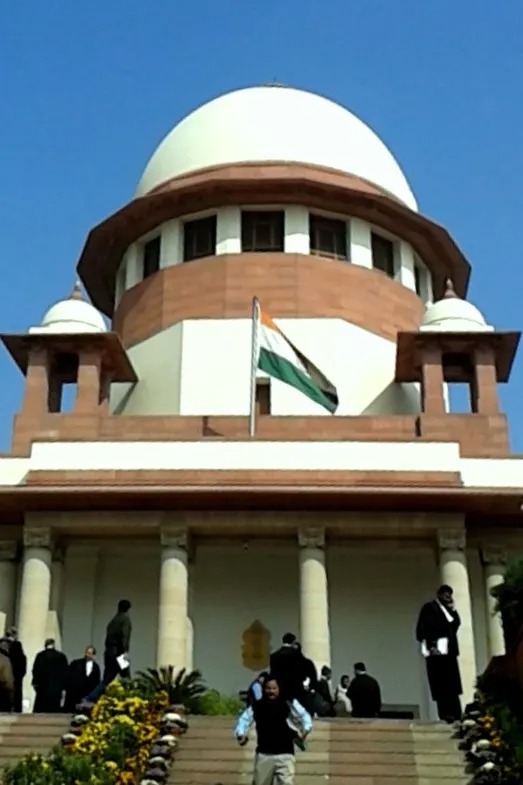S.B. Sinha, C.J.@mdashThis Writ Application involves a question as to whether only because a contractor accepts final payment, the same by itself disentitles him to take recourse to arbitration clause.
2. The parties entered into an Agreement on 20-7-1996 as regards the construction of Relay, Battery, Equipment and Generator rooms at Dupadu, Ulindakonda, Veldurthi and Bogolu stations between Kurnool town and Dronachellam stations.
3. The fact that differences and disputes arose between the parties as regards performance of their respective contractual obligations thereunder is not in dispute.
4. It is also not in dispute that there had been certain subsidiary agreements.
5. According to the petitioner, special conditions of contract would prevail over the general conditions of contract and no claim can be entertained on the general conditions of contract.
6. An Arbitration Application was filed by the first respondent herein purportedly u/s 11(6) of the Arbitration and Conciliation Act, 1996. A learned Single Judge of this Court appointed one of the retired Judges of this Court to act as an Arbitrator in the matter.
7. Mr. Gouri Shankar Sanghi, learned Counsel appearing for the petitioner questioning the aforementioned order dated 19-12-2000 inter alia submitted that when the final bill had been accepted by the respondent -contractor without any protest, the Arbitration agreement has become non est in the eye of law. Strong reliance in this connection has been placed in the decision in Union of India v. M/s. Popular Industries, Calcutta 2000 (7) Sc 72 as also on the decision of one of us (S.B. Sinha, C.J.) in
8. The fact that there existed an Arbitration Clause is not in dispute. A claim of about Rs. 32 lakhs was raised. The learned Single Judge inter alia arrived at a finding of fact that during the subsistence of the contract, certain disputes arose between the parties and for resolving the disputes, the respondent called upon the petitioner to refer the disputes for arbitration in terms of clause (46) of the General Conditions of Contract. A demand was also made by notice dated 3-3-2000 which received no response from the petitioner.
9. No counter-affidavit to the application was filed by the petitioner herein.
10. It is in this situation, in our opinion, the petitioner may not be permitted to raise the questions of fact for the first time in this writ petition. In any event, the petitioner admitted that the first respondent also claimed No Claim Certificate as per clause 43 (2) of the General Conditions of Conduct (sic. Contract) on mentioning "subject to settlement of subsisting claims". It is, therefore, evident that it is not a case where the original contract had been given a go-by and a new agreement has come into being in supersession or by innovation of the earlier contract.
11. In Popular Industries case (1 supra), the Apex Court was considering a matter arising under Sections 30 and 33 of the Arbitration Act, 1940. An objection was raised in the petition to make a Award the rule of the Court. A plea was raised before the Apex Court that no arbitrable dispute existed as the respondent contractor having accepted the final bill without protest, the Award should not be made rule of the Court. Although no such plea was raised before the High Court, the Supreme Court upon satisfying itself that since the final bill that was prepared by the appropriate authority was accepted by the respondent without any protest, which was apparent from the letter of the claimant-contractor, held one of the claims to be not arbitrable. So far as other claims are concerned, however, the objection of Union of India was rejected. The said decision having regard to the provisions of Arbitration and Conciliation Act, 1996 cannot be said to have any application whatsoever in the fact situation obtaining in the present case.
12. In V.M. Thomas (2 supra) this Court relied upon the decision in
.......Even otherwise, we feel that once the parties have arrived at a settlement in respect of any dispute or difference arising under a contract and that dispute or the difference is amicably settled by way of final settlement by and between the parties, unless that settlement is set aside in proper proceedings, it cannot lie in the mouth of one of the parties to the settlement to spurn it on the ground that it was a mistake and proceed to invoke the Arbitration clause. If this is permitted the sanctity of contract, the settlement also being a contract, would be wholly lost and it would be open to one party to take the benefit under the settlement and then to question the same on the ground of mistake without having the settlement set aside.....
13. Having regard to the conduct of the parties in that case this Court did not exercise its jurisdiction although it was held that in terms of the provisions of the said Act, the question as regards the jurisdiction of the Arbitrator can also be adjudicated upon. It was held that there did not exist any valid arbitration agreement which could be taken recourse to for referring the disputes and differences between the parties to an Arbitration Tribunal.
14. In the instant case, however, No Claim Certificate was given as per clause 43 (2) of the General Conditions of Conduct (sic. Contract) mentioning ''subject to settlement of subsisting claims''.
15. It is now a well settled principle of law that title variation or an additional fact made a lot of difference in arriving at a conclusion.
16. In Regional Manager v. Pawan Kumar Dubey AIR 1976 SC 1767, it is observed that one additional or different fact can make a world of difference between, conclusions in two cases even when the same principles are applied in each case to similar facts.
17. In
It is axiomatic that when a direction or order is made by consent of the parties, the Court does not adjudicate upon the rights of the parties nor lay down any principle. Quotability as ''law'' applies to the principle of a case, its ratio decidendi. The only thing in a Judge''s decision binding as an authority upon a subsequent Judge is the principle upon which the case was decided. Statements which are not part of the ratio decidendi are distinguished as obiter dicta and are not authoritative. The task of finding the principle is fraught with difficulty because without an investigation into the facts, it could not be assumed whether a similar direction must or ought to be made as a measure of social justice. Precedents sub silentio and without argument are of no moment. This rule has ever since been followed. One of the chief reasons for the doctrine of precedent is that a matter that has once been fully argued and decided should not be allowed to be reopened. The weight accorded to dicta varies with the type of dictum. Mere casual expressions carry no weight at all. Not every passing expression of a Judge, however eminent, can be treated as an ex cathedra statement, having the weight of authority.
18. In A-One Granites v. State of U.P. AIR 2001 SCW 848 it was observed:
This question was considered by the Court of Appeal in Lancaster Motor Co. (London) Ltd., v. Bremith Ltd. (1941) 1 KB 675, and it was laid down that when no consideration was given to the question, the decision cannot be said to be binding and precedents sub silentio and without arguments are of no moment.
19. The case on hand on the other hand is squarely covered by a Division Bench decision of this Court in
20. For the reasons aforementioned, there is no merit in this writ application. It is, accordingly, dismissed. No costs.
21. Immediately after the judgment is delivered, an oral application has been made by Mr. Gouri Shankar Sanghi, learned Standing Counsel for the Railways seeking to grant leave to appeal to the Supreme Court of India in terms of Article 134-A of the Constitution of India. Having regard to the facts and circumstances of this case, we are of the opinion that this case does not involve a substantial question of law of general importance or a substantial question as to interpretaion of the Constitution of India. Furthermore, the writ petition has been decided in terms of the judgment rendered by the Honourable Supreme Court of India. Leave as prayed for is refused.

